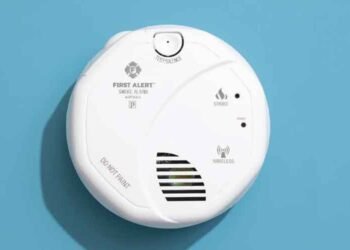Clean air is a critical yet often overlooked factor in maintaining wellness at home. With the rise of air pollution and indoor contaminants, ensuring clean air in living spaces can greatly impact physical health, mental clarity, and overall well-being. From improving respiratory function to reducing allergens, here are some compelling ways that clean air can enhance wellness at home and practical tips for achieving it.
1. Reduces Respiratory Issues
Indoor air can often be more polluted than outdoor air due to dust, mold, pet dander, and volatile organic compounds (VOCs) from household products. These pollutants, when left unchecked, can irritate the respiratory system and lead to issues like asthma, allergies, and other respiratory problems. Clean air reduces the concentration of these harmful particles, allowing everyone at home to breathe easier and reducing the likelihood of chronic respiratory issues. Investing in air purifiers with HEPA filters, maintaining proper ventilation with professionals like Apex Clean Air, and regularly cleaning surfaces and floors are simple steps to improve indoor air quality and protect respiratory health.
2. Enhances Sleep Quality
Good air quality has a significant effect on sleep quality. Poor indoor air can cause congestion and irritate airways, disrupting restful sleep. By keeping the air in the bedroom clean, you can reduce irritants that may cause nighttime coughing or discomfort, leading to better, uninterrupted sleep. Air-purifying plants like snake plants or peace lilies not only improve air quality by absorbing toxins but also release oxygen, promoting a more restful environment. Additionally, using air filters and ensuring that HVAC systems are regularly maintained can further support a cleaner, healthier sleeping atmosphere.
3. Reduces Allergens and Improves Immune Health
Clean air reduces allergens such as dust mites, pollen, and mold spores, which can provoke allergic reactions and strain the immune system. These allergens often lead to symptoms like sneezing, itching, and congestion, increasing stress on immunity and making individuals more vulnerable to illness. By eliminating or reducing these allergens through air purifiers, dehumidifiers, and regular cleaning routines, the home environment becomes a safer, healthier space. Cleaner air allows the immune system to focus on its primary function—fighting off infections and maintaining overall health.
4. Improves Mental Clarity and Focus
Air quality impacts both physical health and mental well-being. Airborne pollutants can limit oxygen supply to the brain, causing fatigue, headaches, and mental fog. Research shows that clean air improves cognitive function, concentration, and productivity, which is particularly advantageous for individuals working or studying from home, as it promotes better focus and mental clarity. Opening windows regularly, especially during hours of low outdoor pollution, and incorporating air-purifying devices can help ensure a steady supply of fresh, oxygen-rich air.
5. Elevates Overall Mood and Reduces Stress
Clean air promotes a sense of well-being by creating a fresh, invigorating environment. Poor air quality can induce stress as the body reacts to pollutants, while clean air allows for easier, more relaxed breathing, contributing to lower stress levels. Natural methods, such as adding indoor plants or using essential oil diffusers with purifying scents like eucalyptus or lavender, can further enhance the air quality and create a calming ambiance. A fresh, breathable home environment is conducive to relaxation, helping reduce anxiety and uplift the mood.
6. Practical Tips for Maintaining Clean Air at Home
To maintain clean air at home, start with a regular cleaning routine that includes dusting, vacuuming with HEPA-filter vacuums, and washing linens to remove dust and pet dander. Keep windows open when possible to allow for natural ventilation, which helps flush out indoor pollutants. Investing in an air purifier with a HEPA filter is beneficial, especially for those with pets or allergies. Additionally, avoid harsh chemical cleaners, which release VOCs into the air, and opt for natural alternatives instead.
Final Thoughts
Clean air is essential for a healthy, comfortable home environment, contributing to better physical health, mental clarity, and emotional well-being. By taking simple measures to improve indoor air quality, you can create a space that not only supports wellness but also enhances your quality of life. Prioritizing clean air at home allows everyone to breathe easier, sleep better, and live healthier.












